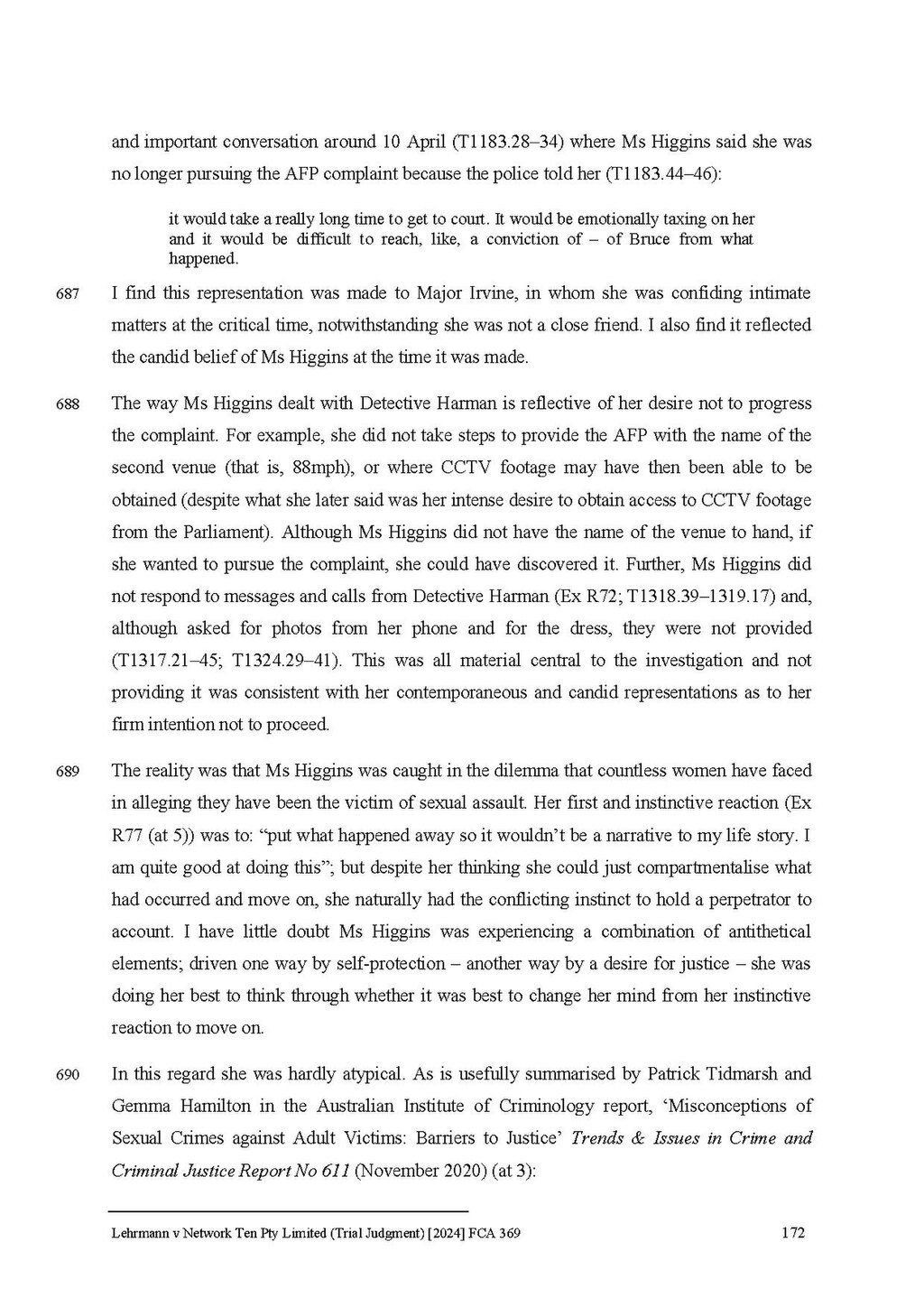and important conversation around 10 April (T1183.28–34) where Ms Higgins said she was no longer pursuing the AFP complaint because the police told her (T1183.44–46):
it would take a really long time to get to court. It would be emotionally taxing on her and it would be difficult to reach, like, a conviction of – of Bruce from what happened.
687 I find this representation was made to Major Irvine, in whom she was confiding intimate matters at the critical time, notwithstanding she was not a close friend. I also find it reflected the candid belief of Ms Higgins at the time it was made.
688 The way Ms Higgins dealt with Detective Harman is reflective of her desire not to progress the complaint. For example, she did not take steps to provide the AFP with the name of the second venue (that is, 88mph), or where CCTV footage may have then been able to be obtained (despite what she later said was her intense desire to obtain access to CCTV footage from the Parliament). Although Ms Higgins did not have the name of the venue to hand, if she wanted to pursue the complaint, she could have discovered it. Further, Ms Higgins did not respond to messages and calls from Detective Harman (Ex R72; T1318.39–1319.17) and, although asked for photos from her phone and for the dress, they were not provided (T1317.21–45; T1324.29–41). This was all material central to the investigation and not providing it was consistent with her contemporaneous and candid representations as to her firm intention not to proceed.
689 The reality was that Ms Higgins was caught in the dilemma that countless women have faced in alleging they have been the victim of sexual assault. Her first and instinctive reaction (Ex R77 (at 5)) was to: "put what happened away so it wouldn't be a narrative to my life story. I am quite good at doing this"; but despite her thinking she could just compartmentalise what had occurred and move on, she naturally had the conflicting instinct to hold a perpetrator to account. I have little doubt Ms Higgins was experiencing a combination of antithetical elements; driven one way by self-protection – another way by a desire for justice – she was doing her best to think through whether it was best to change her mind from her instinctive reaction to move on.
690 In this regard she was hardly atypical. As is usefully summarised by Patrick Tidmarsh and Gemma Hamilton in the Australian Institute of Criminology report, 'Misconceptions of Sexual Crimes against Adult Victims: Barriers to Justice' Trends & Issues in Crime and Criminal Justice Report No 611 (November 2020) (at 3):
